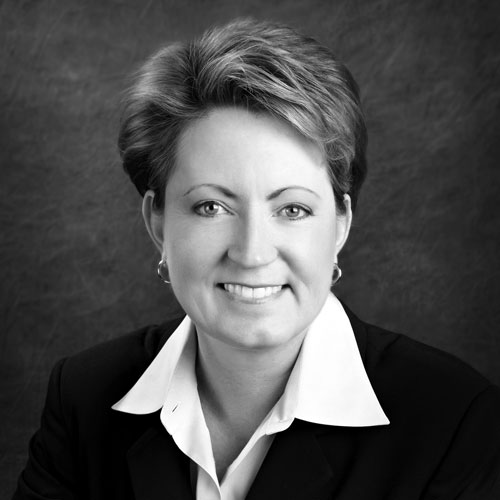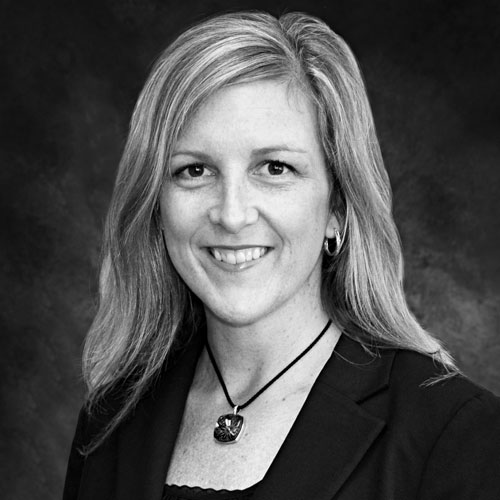Company culture is important at CROSSMARK, a leader in the sales and marketing services industry. Its people are its product and its mission is simple: building connections to help its clients’ and customers’ businesses succeed. CROSSMARK’s culture drives this interaction, which creates growth by providing the most effective services it can. And when Steve Schuckenbrock stepped in as CEO in December 2014, he brought a new strategy with him. Yet the company culture was not shaken, thanks in part to chief financial officer Kelly Parsons, and the rest of senior leadership, who were tasked with maintaining a strong company culture despite these changes.

With 40,000 employees, $900 million in annual revenue, and offices in five countries, culture preservation during such shifts may have seemed challenging, especially considering that Parsons had only joined CROSSMARK in January of the same year. It wasn’t.
For Parsons, the process began with knowing the underlying values that define a business’s culture and how it operates. Maintaining a strong culture means creating a strong foundation that is embedded in all aspects of the business. At CROSSMARK, that foundation begins with its R.E.A.C.H. values (respect, excellence, accountability, collaboration, and honor). “The values of an organization help people through changes,” Parsons says. “They provide a foundation to say, ‘Okay, every day I’m going to be making decisions,’ or, ‘I’m going to be in a situation where I’m doing something different, because there is so much change going on, and as I make those decisions, what is the filter I use to decide what to do?’”
For that decision making to take place, Parsons says one must lead by example. “Leadership from the top is number one,” she says. “Employees take cues from you, so you need to walk the talk and make sure you’re living those values every day in a way that’s visible. That’s what allows those values to permeate the organization.”
In her daily responsibilities, Parsons ensures that the breadth of the business is covered and operating as efficiently as possible to better serve clients and customers in accordance with CROSSMARK’s R.E.A.C.H. values. As CFO, that means working on the ground with business leaders to develop metrics across all facets of the business, ranging from finance to operations to client and customer development.
“The values of an organization help people through changes. They provide a foundation to say, ‘Okay, every day I’m going to be making decisions.'”
Parsons also works with senior leadership to develop and implement new practices aimed toward promoting those values. “You have to measure how you’re doing,” she says. Through its 360-degree feedback program that includes input from superiors, peers, and subordinates, CROSSMARK has been able to effectively evaluate its talent. Its compensation program uses the evaluations to reward those employees who have exemplified conducting business in accordance with its R.E.A.C.H. values. Conversely, it allows CROSSMARK to correct an employee who is not living those values, according to Parsons. Accountability is key.
Through its most recent projects, the success of establishing this cultural foundation has become evident. In July 2014, CROSSMARK opened the Center for Collaboration. It functions as an agnostic facility that provides a workspace for Wal-Mart, one of its customers and suppliers, to come together and do just that: collaborate. Whether it’s what the canned food aisle is going to be like next year or what the end cap display for the holiday season is, the center can provide companies that are sometimes competitors an opportunity to more effectively build connections for growth.
In July 2015, CROSSMARK began a partnership with Gigwalk to form the basis of its new enterprise platform. A technology company, Gigwalk has provided CROSSMARK with a means of adapting to today’s mobile society through the use of smartphones. “We deploy thousands of people to go to retail locations at a local level, and they’re doing something to support our clients and customers,” Parsons says. “They’re using this technology to interact with our centralized operational platform, which is helping us to optimize our field force. It coincides with respect and accountability, by helping people to be better than they were the day before.”
Parsons acknowledges that there is still a lot of work to do to perfect CROSSMARK’s new strategy. “Brick-and-mortar stores are no longer the most convenient places people go to shop,” she explains. “To help our retailers and our consumer packaged-goods clients and partners, we need to understand these new channels and be there to help them navigate these new waters.”
Yet because of the values embedded in the company that help to maintain its culture, Parsons is optimistic. “Knowing your values helps you to paint a picture of where you’re headed,” she says. “If you’re doing what you’re doing every day in a good way, that quality of work will come through no matter who the senior leader is or what the strategy changes are.”

